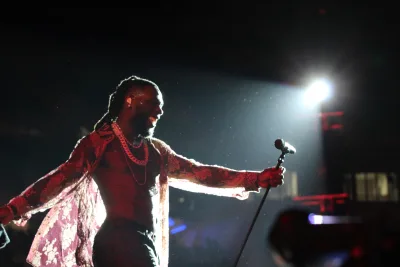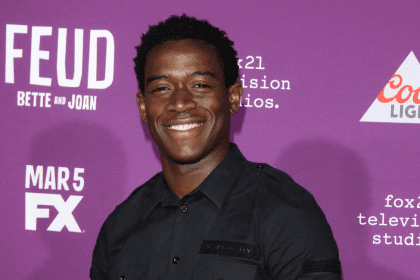Jason Mayden is the CEO and founder of Trillicon Valley, an award-winning design and strategy consultancy that partners with athletes, entertainers and global creatives. Throughout his career, Mayden has worked at some of the biggest sneaker companies, including Nike, where he was the first Black industrial design intern in 2001, helping put together some of the designs that are marketed today.
Mayden is also the author of The Speed of Grace, which he wrote to help others experience creative, physical, professional, personal and emotional growth.
How are you enabling the younger generation to have the confidence to be designers?
There’s a concept in positive psychology called the possible self. What that means is when you see someone that looks like you, you now created a new narrative that you possibly could live in, and you become a protagonist in a new storyline. This also plays out in K through 12 education, and there’s a reason why they say children of color learn better from people that look like them because of its context and nuance. It’s proven. If I was to talk to a Black child in our language and our vernacular with our essence and teach them about a technical topic, there are going to be ways that I say it that resonate with them inherently that I don’t have to explain. They feel more comfortable raising their hand, and they feel more comfortable saying they don’t know because they know the first thing that will happen is I won’t judge their ability or aptitude, or intelligence based on their skin color. They’re just simply [saying], “Hey, I don’t know.” You’re not the Black kid that doesn’t know when you have a Black teacher, you’re not the Black employee who doesn’t know what they’re doing. You’re just the person that’s looking for growth. The reason I’ve decided to lean heavily into education is that I want them to understand that creativity was my jump shot. It’s what got me out of the inner city. A lot of people are like, “Hey, you got to play a sport and make music and do this.” Now, greatness has been democratized so there’s no one definition of excellence in our people anymore.
Blackness is not monolithic and we can’t keep assuming that we have to have one version of success, because it limits our people’s potential from reaching its maximum most potent outcome, which is all of us creating at a high level. I think it’s important for people to see people like me and to learn, and for me to share the things that I’ve learned.

















